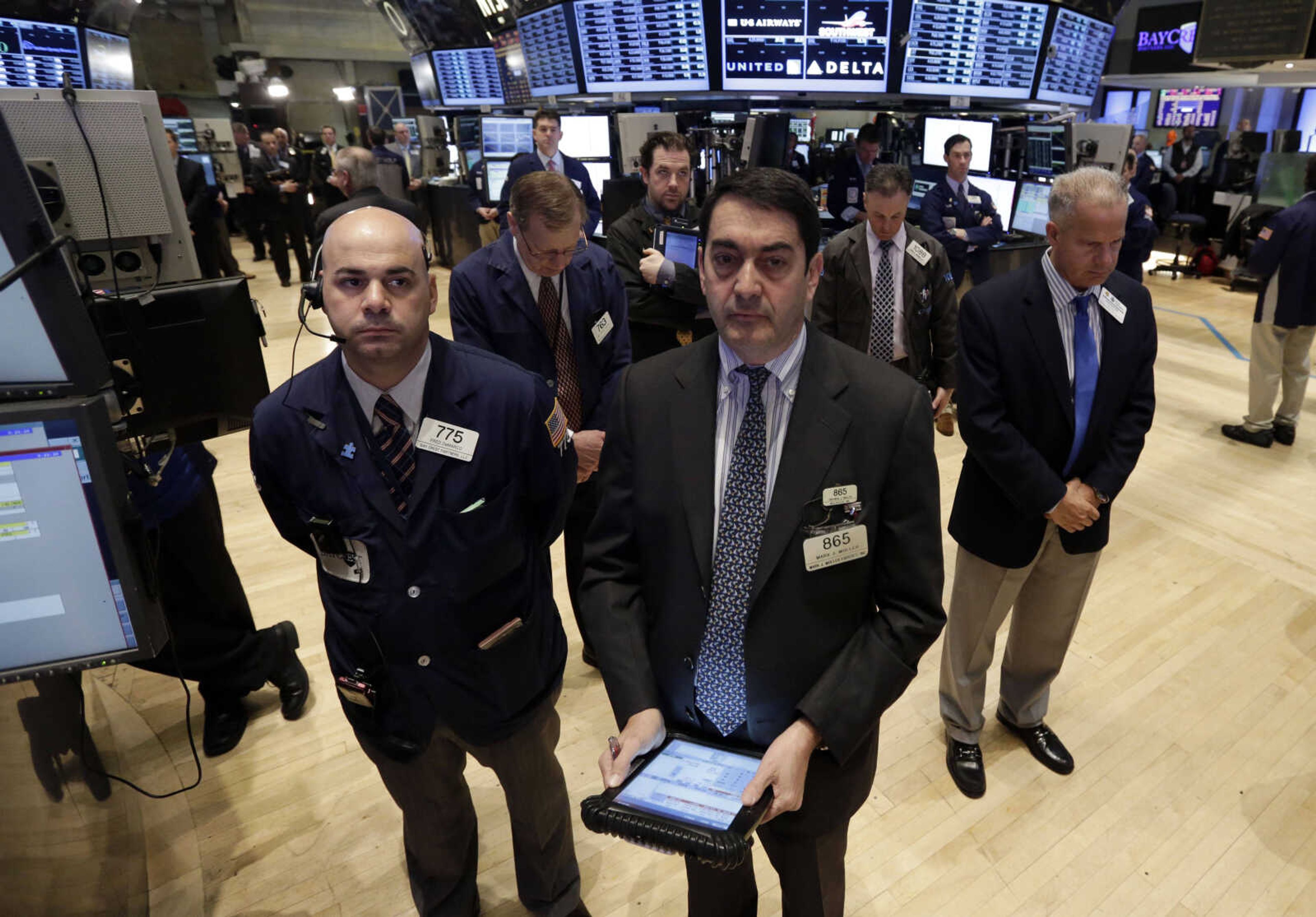NEW YORK -- A strong report on housing and good quarterly earnings from several major companies helped the stock market rebound after its worst day of the year.
The Dow Jones industrial average rose 157.58 points, or 1.1 percent, on Tuesday, to 14,756.78, winning back more than half of the 265 points it lost a day earlier. The Standard & Poor's 500 index climbed 22.2 points, or 1.4 percent, to 1,574.57.
Home construction at an annual rate exceeded 1 million last month for the first time since June 2008. Robust earnings from companies that included Coca-Cola and W.W. Grainger also propelled the market higher.
Monday's market decline -- on the day of the Boston Marathon bombings -- was the largest since November 7, the day after Election Day.
Gold, which was at the epicenter of Monday's sell-off, rose 1.9 percent to $1,387.40 an ounce.
The precious metal plunged 9 percent Monday, its steepest fall in 30 years.
Investors were spooked after China reported economic growth of 7.7 percent, slower than many forecasts. They also sold the metal after another report of low inflation. People often buy gold when they're fearful of rising prices and sell it when they see inflation ebbing.
Gold is down 27 percent since it climbed to a record of $1,892 an ounce in August 2011.
Worries about an economic slowdown in China led to a drop in the price of oil, copper, and other commodities, causing mining and energy stocks to fall. The rally had already slowed earlier this month after reports of weak hiring and retail sales suggested that the economy was cooling off.
"This is the first time in a while that we've had pretty positive numbers," said JJ Kinahan, chief derivatives strategist for TD Ameritrade. "We had one bad day yesterday. You can't say because of that one bad day that all bets are off."
While Chinese growth fell short of expectations, Monday's sell-off may have been disproportionate to the slight slowdown in China's growth.
Growth in the world's second biggest economy missed analysts' forecasts by just 0.3 percentage points. China is watched closely because it is a major market for foreign goods from iron ore to smartphones. Investors hope demand from China can help offset weakness in the U.S., Europe and Japan.
Mining companies rose Tuesday as commodities markets stabilized. Materials stocks gained the most of the 10 industry groups in the S&P 500 after leading the market lower the day before. Homebuilders advanced following the housing report. PulteGroup rose 4.2 percent to $18.60 and Lennar climbed 2.4 percent to $38.70.
Investors should expect a more volatile stock market until there is more confirmation that the economy is strengthening and the outlook for companies is improving, said Jeff Morris, head of U.S. equities at Standard Life Investment.
Analysts are expecting first-quarter earnings for S&P 500 companies to climb 1.2 percent, and to accelerate further as the year progresses, according to S&P Capital IQ data. As of Monday, 34 companies in the index had reported earnings and 20 had exceeded analysts' expectations.
Small-company stocks rose more than the broader market Tuesday, a sign that investors were moving money into riskier assets. The Russell 2000 index climbed 1.8 percent to 923.30. Monday, the index plunged 3.8 percent.
In other trading, the Nasdaq composite rose 48.14 points, or 1.5 percent, to 3,264.63.
Yields on U.S. government bonds rose as investors moved money out of safe investments. The yield on the benchmark 10-year Treasury note climbed to 1.72 percent from 1.68 percent.
Among stocks that made big moves:
Coca-Cola gained $2.28, or 5.7 percent, to $42.37 after its first-quarter results came in above Wall Street's forecasts. Coke said it struck a deal to start refranchising its business in the U.S., which will lower costs.
W.W. Grainger Inc., which sells power tools and other industrial equipment, rose $16.18, or 16.2 percent, to $241.88 after the company said its first-quarter net income climbed 13 percent.
U.S. Bancorp logged the biggest decline in the S&P 500. The lender dropped 59 cents, or 1.8 percent, to $32.72 after it reported first-quarter earnings that fell short of analysts' expectations. The Minneapolis bank's net income rose 7 percent to $1.43 billion as it set aside less cash to cover soured loans.
Whirlpool Corp. jumped $3.66, or 3.2 percent, to $116.78 after the appliance maker raised its quarterly dividend 25 percent to 62.5 cents.
Connect with the Southeast Missourian Newsroom:
For corrections to this story or other insights for the editor, click here. To submit a letter to the editor, click here. To learn about the Southeast Missourian’s AI Policy, click here.







